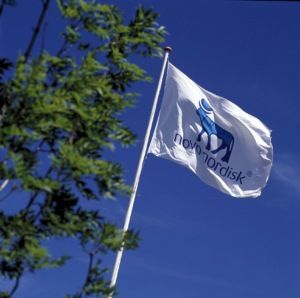News
Novo Nordisk shining in the land of the rising sun
This article is more than 9 years old.
Insulin product Tresiba is becoming a big hit in Japan

Novo Nordisk is on the move in Japan (photo: Novo Nordisk)
The Danish biotech company Novo Nordisk has found a winning formula in Japan as its insulin product Tresiba is making serious inroads in the country.
Novo Nordisk has faced stern challenges in Japan in the recent past, but that has changed thanks to Tresiba enjoying a 33 percent share of the nation’s long-acting insulin market – the best market ratio for Tresiba on the globe.
“We’re seeing a Tresiba effect in which the market is continuously becoming aware of Tresiba’s benefits,” Ole Mølskov Bech, the head of Novo Nordisk’s activities in Japan and South Korea, told Børsen newspaper.
“We are in a phase in which doctors and health personnel have seen such positive experiences using Tresiba that they are becoming more and more secure with the product. It’s a positive circle.”
READ MORE: Novo Nordisk Foundation giving 120 million kroner to intestinal bacteria research
A unique market
The company has turned several years of negative growth in Japan into 6 percent growth in 2015, and it wants to use that experience in other markets. Yet, it’s not quite that simple.
In Japan, as opposed to other regions, most people who get diabetes are elderly and those patients are often afraid to fall during fits of hypoglycemia, which occurs when blood glucose levels fall below a certain point. Therefore, they appreciate Tresiba’s profile, which seriously reduces the risk of falling glucose levels.
Novo Nordisk currently has a market share of about 11 percent of the total diabetes treatment market in Japan, which is still far less than it enjoys in other modern markets.










































